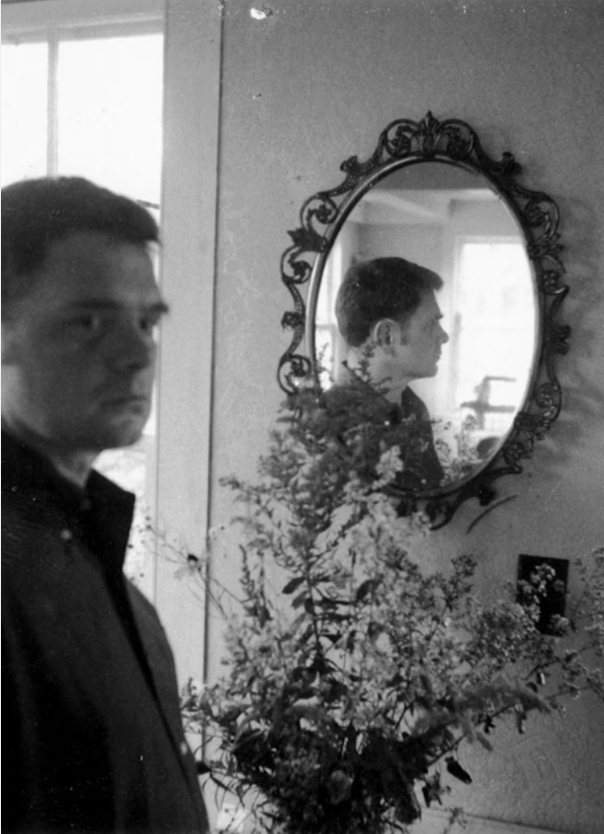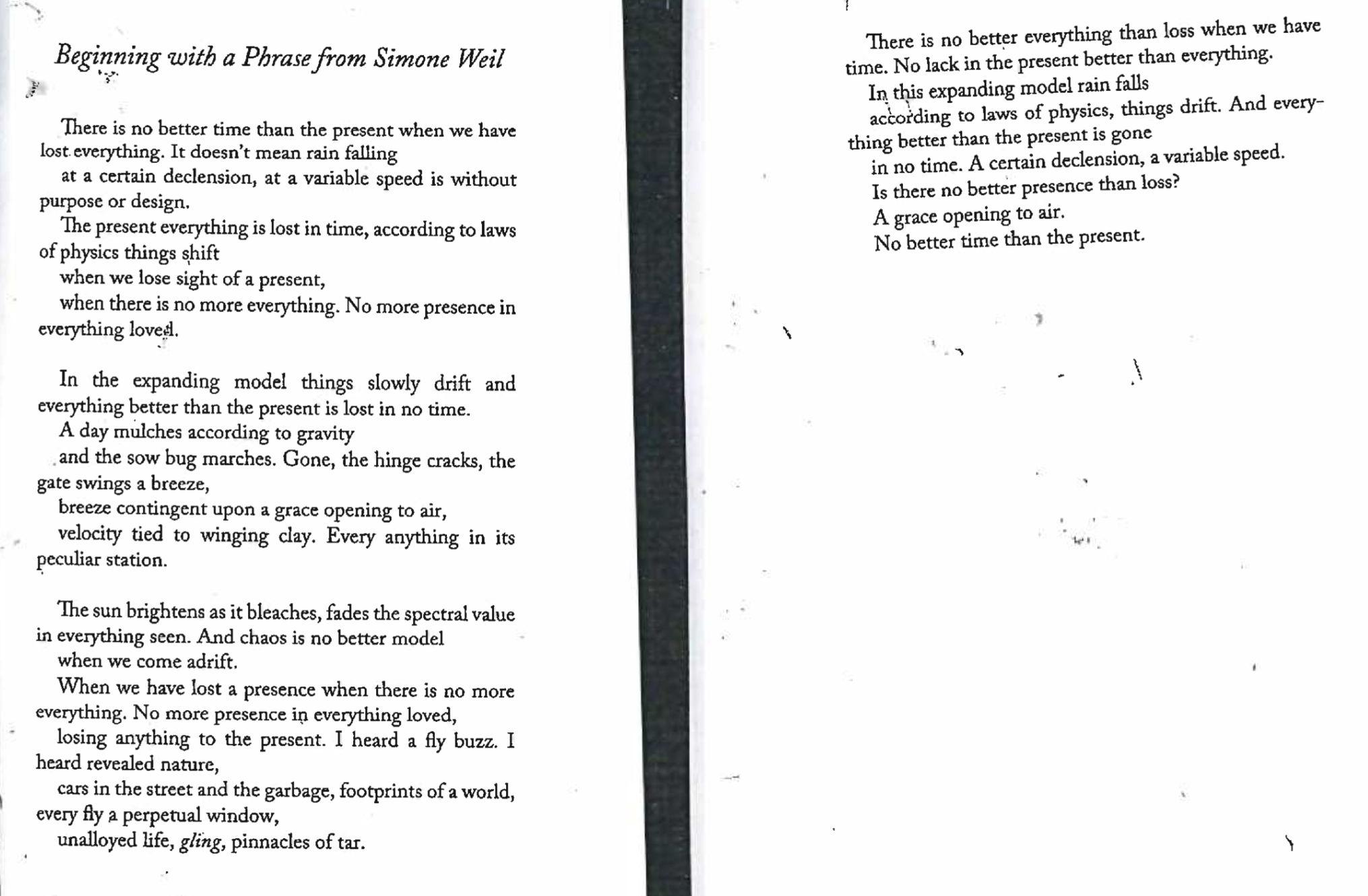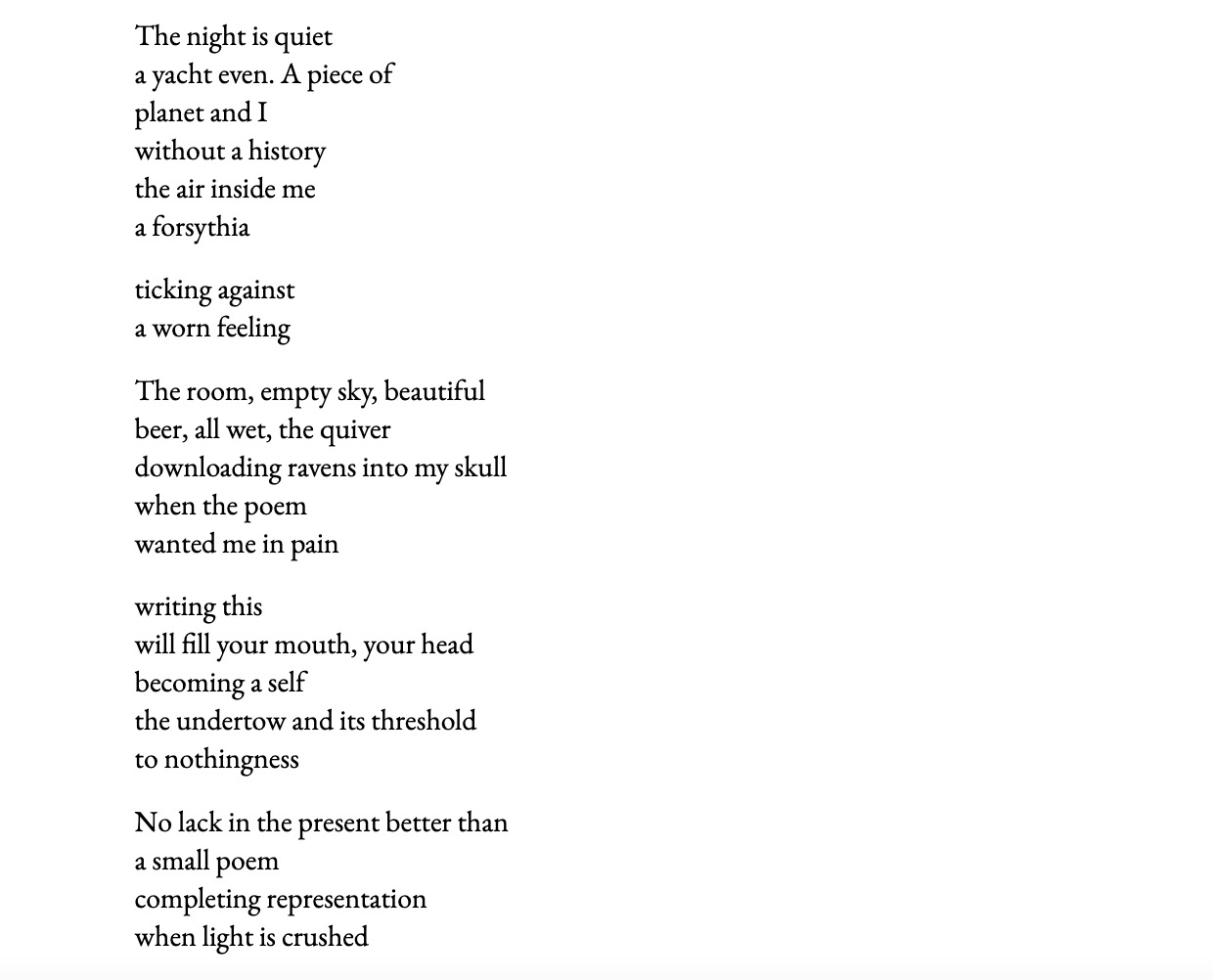a freedom which excludes is less than free
— James Schuyler, “Immediacy is the Message”
I could go on. I go on.
This is why I love James Schuyler.
He doesn’t care
that “the plants against the light
which shines in”
is a dull observation. Or that
”Trees, and trees, more trees”
is just the layered visual experience
we all have in the forest, waiting
to let ourselves take in the sign
to turn back, go home
and really hate someone.
— Emily Skillings, “The Duke’s Forest”
*
In celebration of Emily Skillings’ delightfully-furious new collection, Tantrums in the Air, I returned to James Schuyler’s sharply-chiseled lines this week, admiring his inventorying eye, his corduroy-smooth syntax, and how closely he hewed to the syllabic texture of sound, particularly in his Letter Poem series.
LETTER POEM #3
The night is quiet
as a kettle drum
the bullfrog basses
tuning up. After
swimming, after sup-
per, a Tarzan movie,
dishes, a smoke. One
planet and I
wish. No need
of words. Just
you, or rather,
us. The stars tonight
in pale dark space
are clover flowers
in a lawn the expanding
universe in which
we love it is
our home. So many
galaxies and you my
bright particular,
my star, my sun, my
other self, my bet-
ter half, my one
A series of small things make this poem a marvel. For instance, enjambing that 5th line in order to set up a beat on the rhyme between “up” and “sup” — since “supper” swallows the sound with that purling “per”. The way “we love it is” dangles in the center, detached, quasi-cosmic, supernal and yet simply grounded by the monosyllables. And no period to punctuate the ending of this single-stanza skyscraper. Schuyler certainly wasn’t shy at punctuating his poems with periods. To me, all of his periods are audible, indicative of pauses between steps, like the hollow sound that rises from the ground when someone is pacing and the foot hovers above the floorboards. There is an expectancy of sorts to his pauses, and you can hear it in “Sleep” . . .
SLEEP
The friends who come to see you
and the friends who don’t.
The weather in the window.
A pierced ear.
The mounting tension and the spasm.
A paper-lace doily on a small plate.
Tangerines.
A day in February: heart-
shaped cookies on St. Valentine’s.
Like Christopher, a discarded saint.
A tough woman with black hair.
”I got to set my wig straight.”
A gold and silver day begins to wane.
A crescent moon.
Ice on the window.
Give my love to, oh, anybody.
I cherish this final line with the mute intensity reserved for unexpected sunshine opening in the middle of a thunderstorm — all those “o”s bumping into each other and trying to disentangle themselves from the forward motion of the declarative command: “Give my love to, oh, anybody.” Noting, too, the way “body” alters how the poem’s mouth closes— not with the matching “o” of “anyone” (that could so easily attach itself to “love” and thus vanish in the self-same sounding) but with the gallop of any-bod-ee, and the bump of that d.
Schuyler played with forms of address; he appreciated Frank O’Hara’s roving interlocutions that alternated between moving like arrows and bouncing like plastic balls at a fun fair, seeking a willing conspirator. This friskiness comes out in “Address,” where an ancient appears as an apogee.
ADDRESS
Right hand graced with writing,
my left arm my secondhand new
suit bestrode, from the auto I
say, “Antinous, perched like a
parakeet cracking sunflower seeds
in a hot ice cave or cage,
you’re an apogee. Acid pennies
will fill your mouth, your head
bowl at a soldiers’ revel. Fly
the safety you despise and seek,
a butcher with a butcher’s knife
peers. The lice are fast. Ta ta.”
One can even imagine some of these words coming from a list of A-words in the poet’s notebook. Address; Antinous; apogee; acid; and that final “ta, ta” — a bit of badinage that culminates in “ah”s. . .
Photo of James Schuyler taken by Joe Brainard, sourced from the The Estate of Joe Brainard.
THE TRASH BOOK
for Joe Brainard
Though I do not know what
to past next in the
Trash Book: grass, pretending
to be a smear maybe or
that stump there that knows
now it will never grow
up to be some pencils or
a yacht even. A piece of
voice saying (it sounds like)
the hum that hangs in only
my left ear. Or “Beer” not
beer, all wet, the quiver
of the word one night in
1942 looking at a cardboard
girl sitting on a moon in
West Virginia. She smiled
and sipped her Miller’s.
Albert Pinkham Ryder, The Race Track (Death on a Pale Horse), c. 1896-1908
OVERTAKELESSNESS
after Albert Pinkham Ryder
To speak inaudibly, the outside,
its blurred sentence foreshadowed,
indistinguishable as shining brass.
The room, empty sky, beautiful
or golden bands burn because it is empty.
Without depth of field birds become primitive again.
Unstuck weeds float downstream
completing representation.
A thick green complicating light.
Now face the horizon is silence.
Come down while gladness unbinds sleep
unlike silt. This quiet speech feels right
and will be imitated. To turn away,
to speak fondly without a history.
Come down and rediscover this ancient province
as persons exchange smiles like wind instruments.
There, unlike any road you travel,
are small tidings that awakening,
are pleasing. No history is clear.
(If you hear Schuyler dialoguing with Ashbery, your nose is excellent.) Towards the end of his life, artist Arthur Pinkham Ryder lost interest in exhibiting his art and was said to live “in a decrepit home coated in dust, the floors littered with unwashed dinner plates, and obsessively reworked his existing paintings.” In my imagination, to rework a piece obsessively summons something of Schuyler’s title, that loosely-coined word, “overtakelessness.”
”When I say the ghost has begun / you understand what is being said,” Schuyler says in the first lines of “True Discourse on Power.” Compare the loquaciousness of this poem to the sparsity of “A Ghosting Floral”.
Schuyler also wrote many poems with lengthier lines, and “Revival” (a poem dedicated to Gregory Corso) is one of them. “It’s good to not break in America,” the poet tells his friend. Lament and comraderie is the backdrop, and that surface is also recognizable in “Beginning with a Phrase from Simone Weil”:
THE PRESENT IS CONSTANT ELEGY
Those years when I was alive, I lived the era of the fast car.
There were silhouettes in gold and royal blue, a half-light
in tire marks across a field — Times when the hollyhocks
spoke.
There were weeds in a hopescape as in a painted back-
drop there is also a face.
And then I found myself when the poem wanted me in
pain writing this.
The sky was always there but useless— And what of the
blue phlox, onstage and morphing.
Chance blossoms so quickly, it’s a wonder we recognize
anything, wanting one love to walk out of the ground.
Passion comes from a difficult world — I’m sick of twi-
light, when the light is crushed, time unravels its string.
Along the way I discovered a voice, a sun-stroked path
choked with light, a ray already blown.
Look at the world, its veil.
. . . And a little Schuyler cento for the moon in West Virginia—




